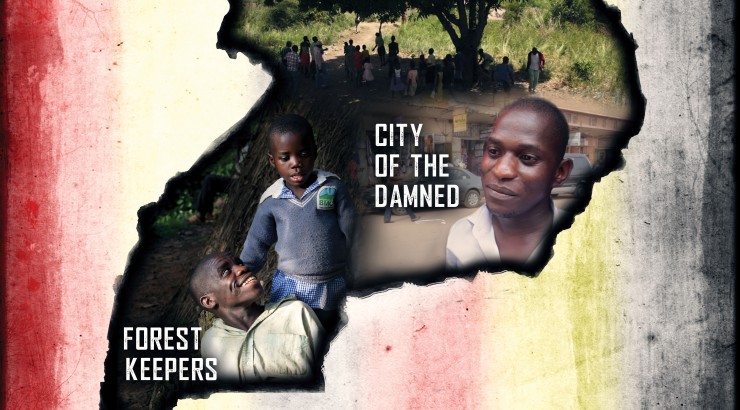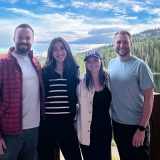“Destination: Africa 2013” Unites Continents, Cultures, and Student Documentarians
December 6, 2013
Congratulations to the student teams who presented their films in Destination: Africa last night!
Every year, our documentary program, led by Professor Jeff Swimmer, whisks students away from their comfortable American lives, embedding them in a foreign culture, where they are charged with creating short films with a global impact. Destination: Africa films are produced in our renowned International Documentary Program and profile non-profit organizations (NG0s), made possible through the generosity of an anonymous donor, for which we are extremely grateful.
After a round of introduction and congratulations to the community, and our sponsors, Dean Bassett began the night saying,
Tonight’s program has been sponsored since 2008, by a very generous film school family. They underwrite students going abroad, and making films. And I personally think there’s absolutely no better way to understand the otherness of other countries, and the difference, and the similarities, than making a film.
And this philosophy, of connection despite difference, clearly united all the films this evening.
Bob spoke to the importance not only of collaboration on a global scale, but importantly, also right here at Chapman. You see, the program is actually an interdisciplinary project between Dodge College, the Law School, and Wilkinson College. Students from various backgrounds and diverse disciplines come together, to reach out across the globe, and impact the lives of their fellow humans.
Stories, in documentaries, are really discovered [not produced]. So it’s important for students to spend ample time beforehand studying the country before they ever leave, and where they intend to film… However, often the story they make, is not the story they set out to make. And this is the nature of documentary.
The three films screened yesterday evening include: City of the Damned, Forest Keepers, and Under the Mango Tree. (Read more about the plot of each film here).
After the student screenings, during a lengthy, no-holds-barred, Q&A period, many of the students reiterated the themes touched on by the Deans: that the process of physical relocation and coming in to contact with new people and new ideas, catalyzed an internal change, which allowed them to look within themselves to find the kernel of truth in each of their stories. One of the filmmakers from Forest Keepers, described the difficulty of bridging culture gaps:
Whenever you make a documentary, gaining access, and trust, is incredibly hard when you can’t speak the language. Especially since when the translation isn’t exactly synced up with how we communicate. So what did we do? We played games, we played hackeysack, we made bracelets. We learned to interact with them non-verbally.
And isn’t that what film itself is best at? Stripping away all the barriers of language, of culture, of custom, and simply showing humans as they are, and as a result, how we’re all connected.
After the closing remarks, I was left holding on to the introduction by Dean Tom Campbell of the Law School; with a touching note of humility and emotion, he recalled the words of ex-president Nelson Mandela, reminding us of the shared humanity which these student artists draw from:
Even the most grievous wrongs, can be forgiven. The way of solving disputes, is not by recrimination, but by forgiveness, and recognition of common humanity.
And this is truly the success of Destination: Africa, to reinforce the similarities and commonalities between us, and to create a new foundation of shared experience to build upon, both around the world, and at home.
I feel so blessed to be part of this class. The only reason I’m a doc filmmaker is one of the most healing ways to bring people together, and to get to voice your stories, is one of the most powerful tools we have as human beings. People make documentaries for different reasons… for us, not only are we receivng a gift, but also to give a gift as well, which is to allow someone to tell their story, to then share it with others. To me that’s advocating; that’s healing. That’s storytelling.


